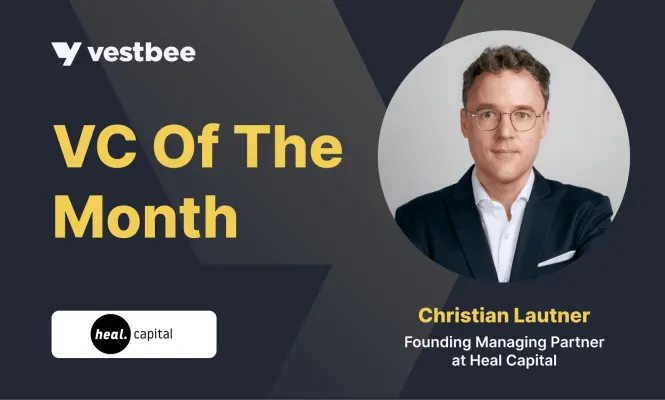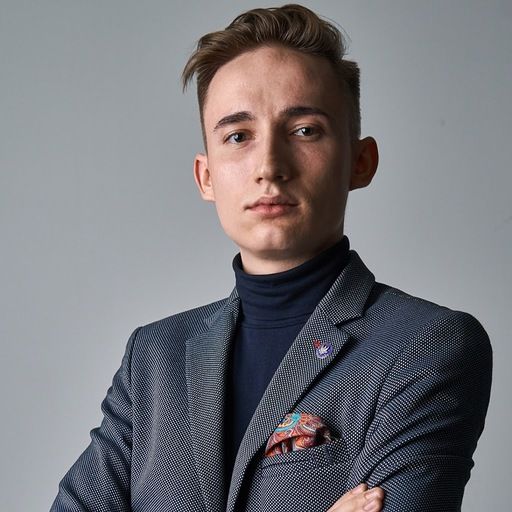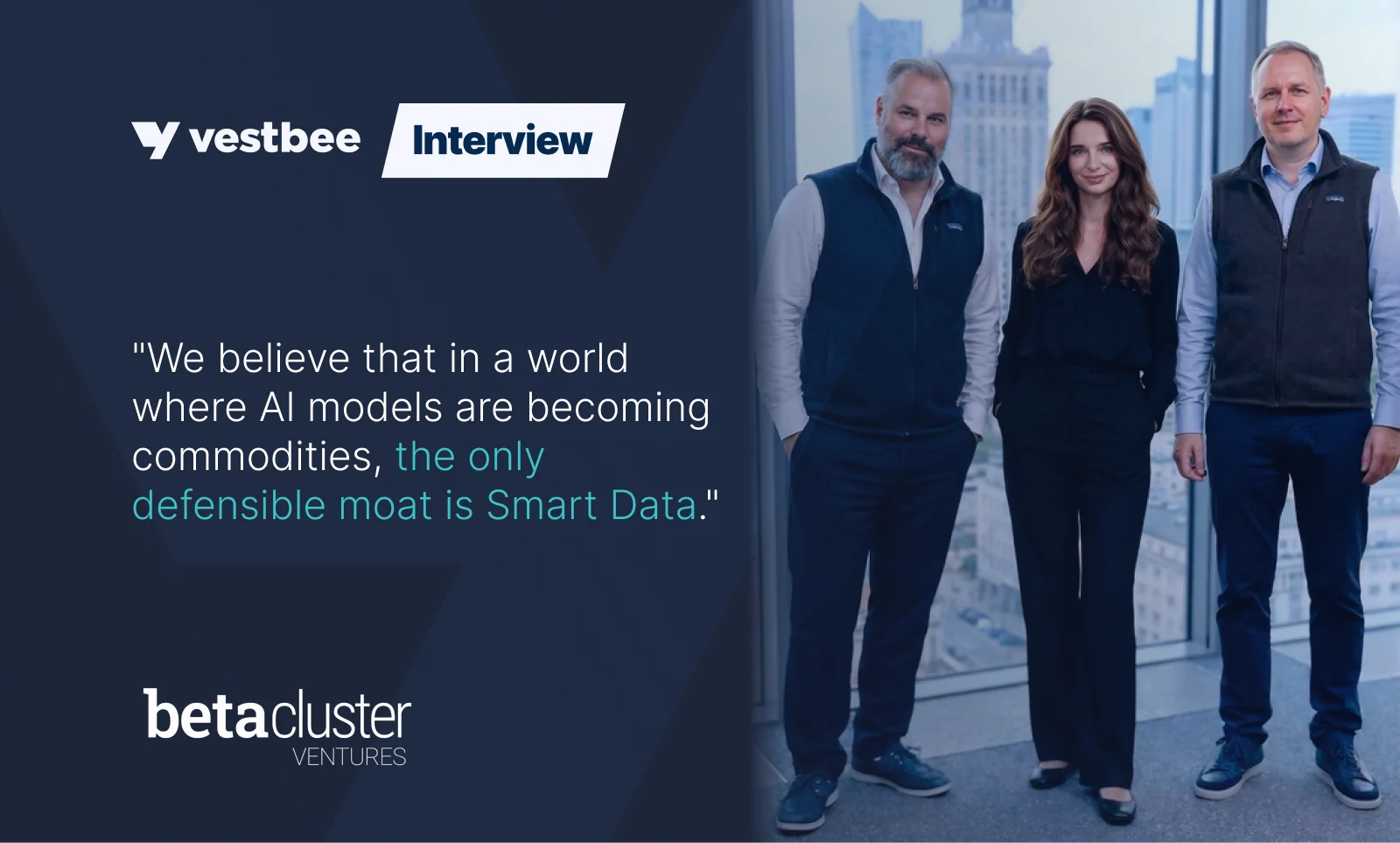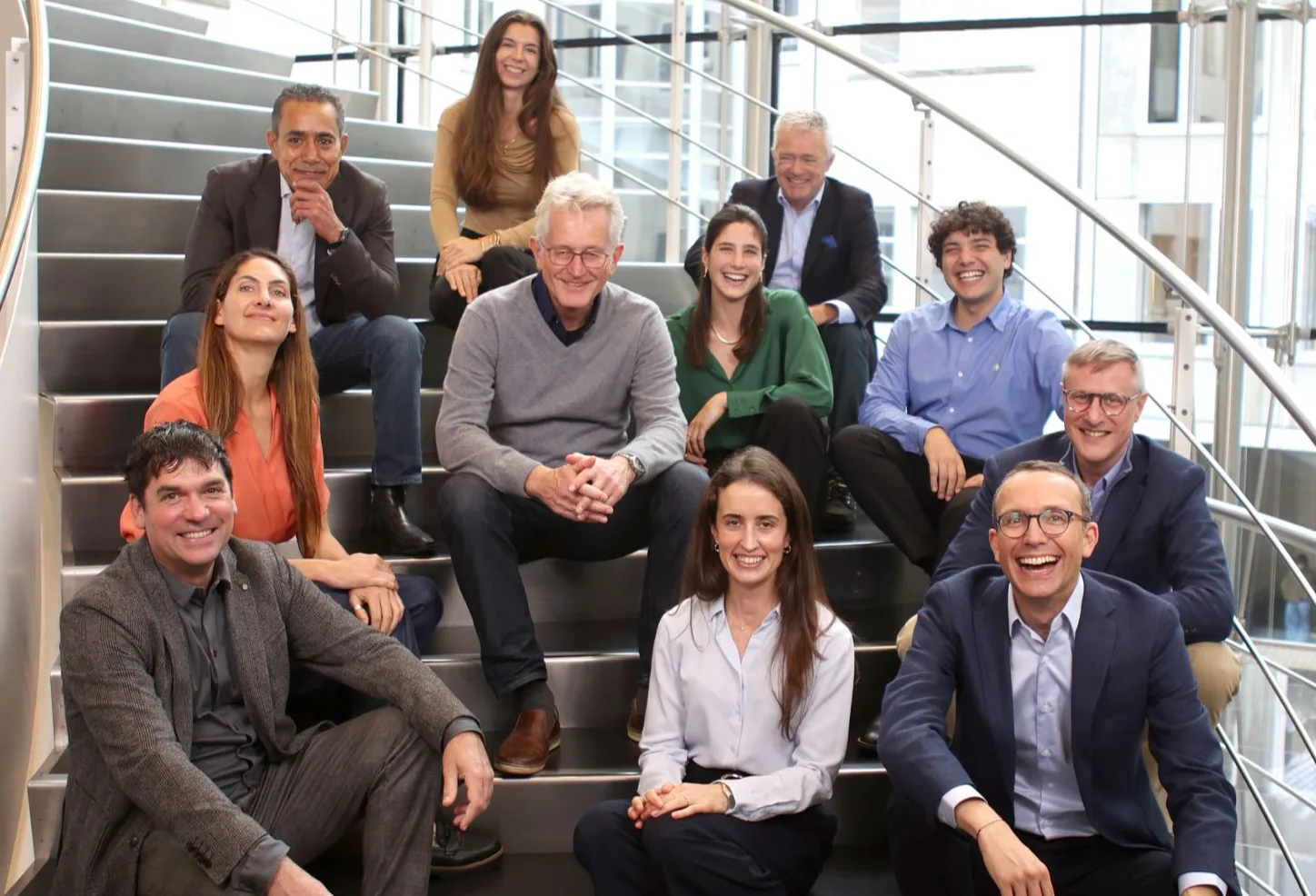Heal Capital is a European VC fund that invests in early-stage healthtech startups across Europe. With a proven combination of deep vertical knowledge and a strong network within the healthcare industry, Heal Capital provides founders with direct access to the healthcare system. The fund is backed by over 20 health insurers and other healthcare players, managing €200 million across two funds.
The firm’s Founding Partner, Christian Lautner, shared more details with Vestbee about its recent fund strategy and investment approach.
Fund strategy overview
Geography: Europe, including UK
Preferred industries: digital health / healthtech
Investment ticket: €500,000-5 million initial investment
Company stage: pre-seed to Series A at initial investment
Product type: software and tech-enabled
Product stage: some measurable success at an early stage preferred
Revenues: preferably initial traction via revenue, users, or scientific evidence
Q&A with Christian Lautner, Founding Managing Partner at Heal Capital
What are the 5 main things you look for in a startup?
As healthtech VC, we focus on identifying and validating scalable business models that can demonstrate measurable success at an early stage. When evaluating a startup, we look for:
- Founder(s). We invest in founders with a vision for the future of health & care in their field of activity. Some founder characteristics we look for include grit & persistence, as well as adaptability to seize and capitalize on opportunities in a fast-changing environment. We dare to invest in founders who are building the “non-obvious future of healthcare.” Founders need to stand up for their mission and communicate clearly.
- 10x change. We look for startups that aim for a 10x change in the status quo, not incremental improvements. We continually monitor trends and innovations to identify companies with breakthrough technology, radically new business models, or those that address shifts in customer behavior and organizational changes.
- Clear execution plan. While we look for platform potential, founders need a clear execution plan to reach the next milestones in their entrepreneurial journey and the launch of their startup.
- Scalable business model. We're looking for solutions that can win beyond one European market and ultimately on a global level. Europe is an ideal breeding ground for digital product innovation in healthcare, thanks to its large population, aging demographics, diverse healthcare systems, and political support for digital health.
- (add-on) AI-enabled solutions. We believe AI is a perfect match for medicine, it already transforms diagnosis, triage, and admin. AI platforms have the power to cross traditional business model lines and expand access to healthcare. They will replace legacy software and relieve staff shortages. We also see a future where AI will commoditize most of clinical decision-making.
What disqualifies a startup as your potential investment target?
Of course, when a startup falls outside our investment mandate, such as biotech assets. We always seek valuable connections for startups. However, an investment will not be possible. Moreover, when founders are looking for an early exit. We are seeking mission-driven founders who are building generational companies.
Finally, only PowerPoint presentations or founders waiting for the check to get started will not be accepted by us. You will need to have conviction to move forward, so that others can follow you. That includes us as an investor. The founders are in the driver's seat and need to know their space the best.
What, in your opinion, differentiates the best founders from the rest?
Communication. Obsession. Resilience.
What startups should take into account before making a deal with a VC fund?
I always ask three questions:
- First, is the founder aware of what it means to work with a VC and willing to do so (founder-vc match)?
- Second, is the startup and its model a VC case (model-vc match)?
- Finally, is there a personal match with the VC fund and the responsible investment person?
What is your approach to startup valuation and preferred share in the company?
We invest in early-stage startups from pre-seed to Series A. Our investment ticket sizes range from €500,000 to €5 million, depending on the startup's maturity and phase. In my experience, entry valuation has to make sense. For that, there are different approaches for different models, ranging from a pure revenue perspective to a pure equity story perspective, particularly when the technology is more deep-tech driven (for brevity, details are omitted here).
Most important to me is a fruitful discussion around valuation with the founder and, potentially, existing investors. Minimum ownership stake is 10%.
How do you support your portfolio companies?
We support our portfolio companies by providing capital and immediate access to the healthcare system. Heal Capital is built on a strong ecosystem and rooted deeply in health & care. LPs include over 20 private health insurers, pharmaceutical companies, and the EIF. Our team at Heal Capital consists of experienced entrepreneurs, investors, and scientists with an ecosystem of industry experts we can reach out to.
What are the best-performing companies in your portfolio?
We can confidently say that our portfolio companies are among the fastest-growing healthtech startups in Europe.
Simple reasons why I stay abstract on the question:
- My deep respect and admiration for every founder we have the honor of working with.
- Startups are a volatile business. It is a bit like an ultramarathon: it’s a long-distance race with a lot happening during the run.
The weather might change quickly, i.e., in healthcare regulatory changes that open or close opportunities. There is nothing more fulfilling than witnessing entrepreneurs and their companies grow alongside them. Therefore, a big shoutout to our portfolio founders and every single entrepreneur out there. You are amazing.
What are your notable lessons learned from investments that didn’t work out as expected?
It’s all about the human beings involved.
Let me finish with something positive: We are eager to back the best founders. That includes founding teams as well as single founders. I mention the latter explicitly because there are outstanding founders out there who work more effectively when they make decisions independently. In VC, there is a tendency to require teams for “de-risking” reasons. We believe the greatest risk for us as a fund is missing out on an exceptional founder building a generational company; therefore, Heal Capital also invests in single founders.
What are the hottest markets you currently look at as VC, and where do you see the biggest hype?
Once things are hot and hyped in the broader VC bubble, it is usually too late for us as an early-stage, sector-focused VC. We love to explore things that might seem boring, crazy, or unconventional in healthcare.
In your view, what are the key trends that will shape the European VC scene in the coming years?
I firmly hope that the European VC scene will continue to grow and push innovation in Europe. At all costs, we must avoid a funding desert like post-2000, when funding disappeared, and we missed a decade of innovation. For the healthcare VC scene, this will very much depend on reforming the healthcare systems in Europe, allowing new players to enter reimbursement and other budgets. We do not need more money in health & care — we need more competition and less (over)regulation.







